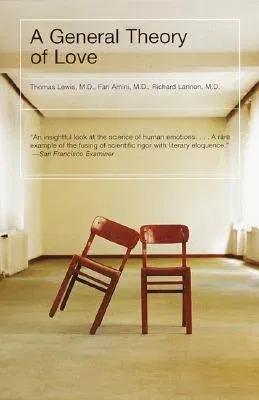Thomas Lewis
(Author)A General Theory of LovePaperback, 9 January 2001

Qty
1
Turbo
Ships in 2 - 3 days
In Stock
Free Delivery
Cash on Delivery
15 Days
Free Returns
Secure Checkout

Print Length
288 pages
Language
English
Publisher
Vintage
Date Published
9 Jan 2001
ISBN-10
0375709223
ISBN-13
9780375709227
Description
Product Details
Book Format:
Paperback
Country of Origin:
US
Date Published:
9 January 2001
Dimensions:
20.32 x
13.34 x
1.52 cm
ISBN-10:
0375709223
ISBN-13:
9780375709227
Language:
English
Location:
New York, NY
Pages:
288
Publisher:
Weight:
272.16 gm